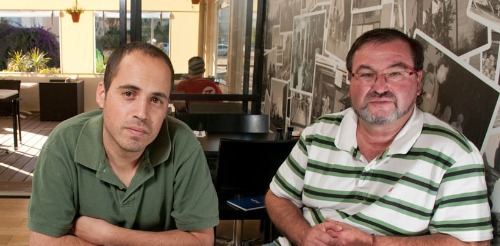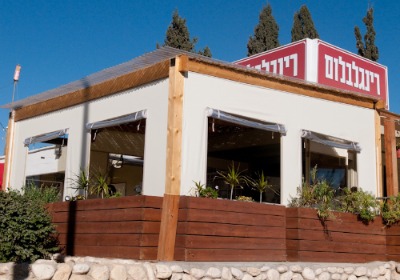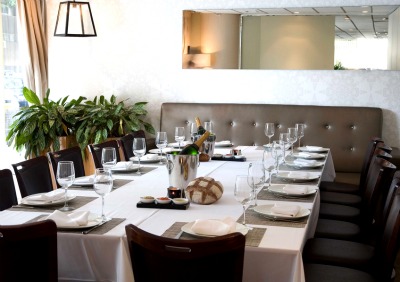Dualis Social Venture Fund provides resources for ‘social businesses’ that aim to empower society’s underdogs through solid entrepreneurship.

If you go for a bite to eat at Beersheva’s Café Ringelblum, or at Liliyot in Tel Aviv, you won’t notice any difference between these establishments and many others like them. Read the card on your table, however, and you’ll understand what makes them stand out: They’re two of five “social businesses” in the portfolio of the Dualis Israel Social Venture Fund.
Social businesses represent a new sector in the Israeli market geared to practical philanthropy. The ideal social business turns a profit while providing opportunities and skills to employees from disadvantaged populations – from high school dropouts to disabled adults.
Employing, training and rehabilitating people with various special needs enables them to become givers instead of receivers, explains Dualis founder Allan (Chanoch) Barkat.
Balancing social and financial goals
The fund, established in 2009, invests up to NIS 500,000 (more than $135,000) in initiatives with strong social and financial potential. The two elements go hand in hand, as the social piece of the plan can succeed only if the business turns a profit.
It’s a delicate balance. The venture must be sustainable without the need for grants and contributions, but at the same time must give up on maximizing profits in favor of promoting a social objective and serving as an educational and ethical model for others.
Dualis provides services for the business side of the equation with assistance in strategic thinking, financial management, marketing and business development. A Dualis representative sits on the directorate of each venture along with representatives from the business world and from the relevant social area.
“We work with the same methodology as a venture capital firm,” Barkat tells ISRAEL21c. “We look for committed entrepreneurs with a business plan. But that plan has to have, as a material part of it, a social cause. A restaurant that employs one youth at risk is not a material social cause.”
To be taken under the wing of Dualis, a would-be social entrepreneur must demonstrate that the concept can be profitable and provide a reasonable and measurable rate of return on investment. The fund also requires a partner, preferably from the social side, to commit to the effort.
For example, the Liliyot kosher chef restaurant and café/bakery in Tel Aviv and its new bistro in Ra’anana employ 25 at-risk teens under the supervision of ELEM, a national non-profit rehabilitation organization. Tor Hamidbar, a social/educational NGO active in Beersheva, oversees the 15 disadvantaged youths employed at Café Ringelblum.
Tracking performance
Training is an essential part of each Dualis-backed initiative, both for the special employees and the professional staff that works with them. Proper training gives the target population the best possible shot at going on to a successful career in the field.

“We continuously measure our performance,” says Barkat. Dualis hired Dr. Aharon York of Bar-Ilan University to revisit Liliyot “graduates” York had tracked in 2008, before Dualis was involved in the project. As before, about half of them were working in restaurants and hotels and many were successfully integrated into the army, but there were more participants than previously, and they were receiving more hours of work and therapy.
“Liliyot is one of the few restaurants around the world that has a fulltime social worker on premises,” says Barkat.
Dualis also supports Olgo, a recycling business in the economically depressed community of Giv’at Olga, which employs single parents, youth at risk, new immigrants and people with special needs.
Barkat and his team at Dualis aim to make up to five new investments every year.
Israel has socially innovative ideas
The social venture capitalist, who moved to Israel from Toronto in 1970, has a bachelor’s degree in computer science from the Technion-Israel Institute of Technology and an MBA from the Kellogg-Recanati International Executive MBA program.
He says that his experiences mentoring businesses in northern Israel, running a leading private equity investment group and chairing the Ness Fund, which granted loans to businesses in the Negev, convinced him of the opportunity and need to encourage social entrepreneurs to create profitable social businesses.

“Now we are working with government and third-sector groups to overcome current barriers from regulatory issues that will make it easier to set and run social businesses,” says Barkat, who is not related to Jerusalem Mayor Nir Barkat.
One of 36 members of the prime minister’s round table for private, public and third-sector movers and shakers, Barkat believes that “Israel probably has more people with socially innovative ideas per capita.”













